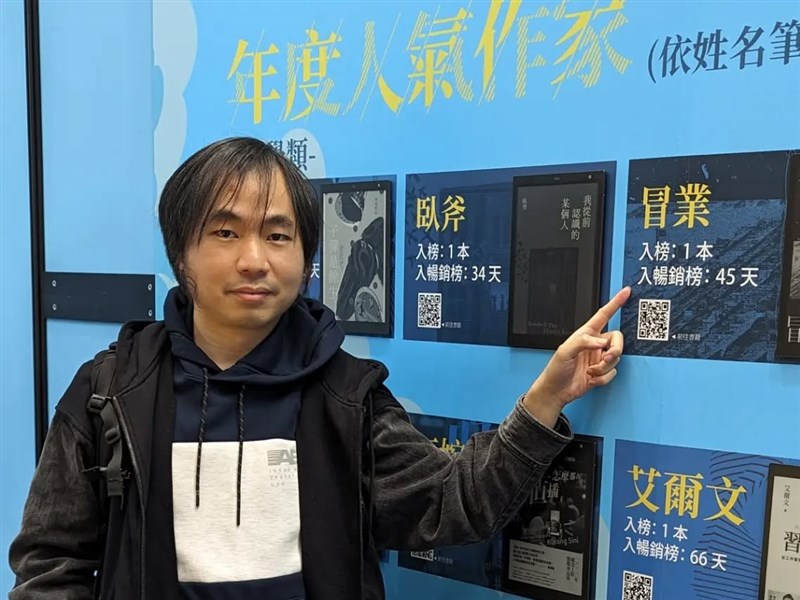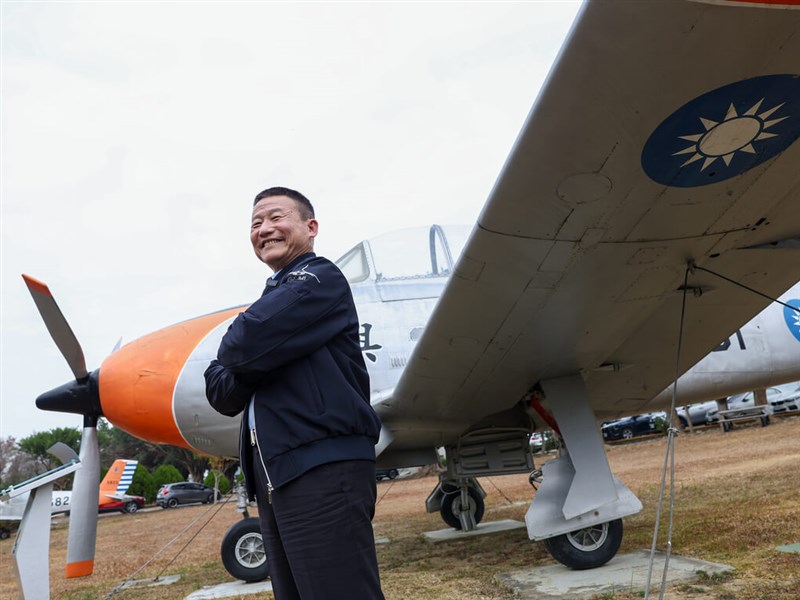INTERVIEW/Protester to soldier: Hongkonger finds road to Taiwan citizenship bumpy
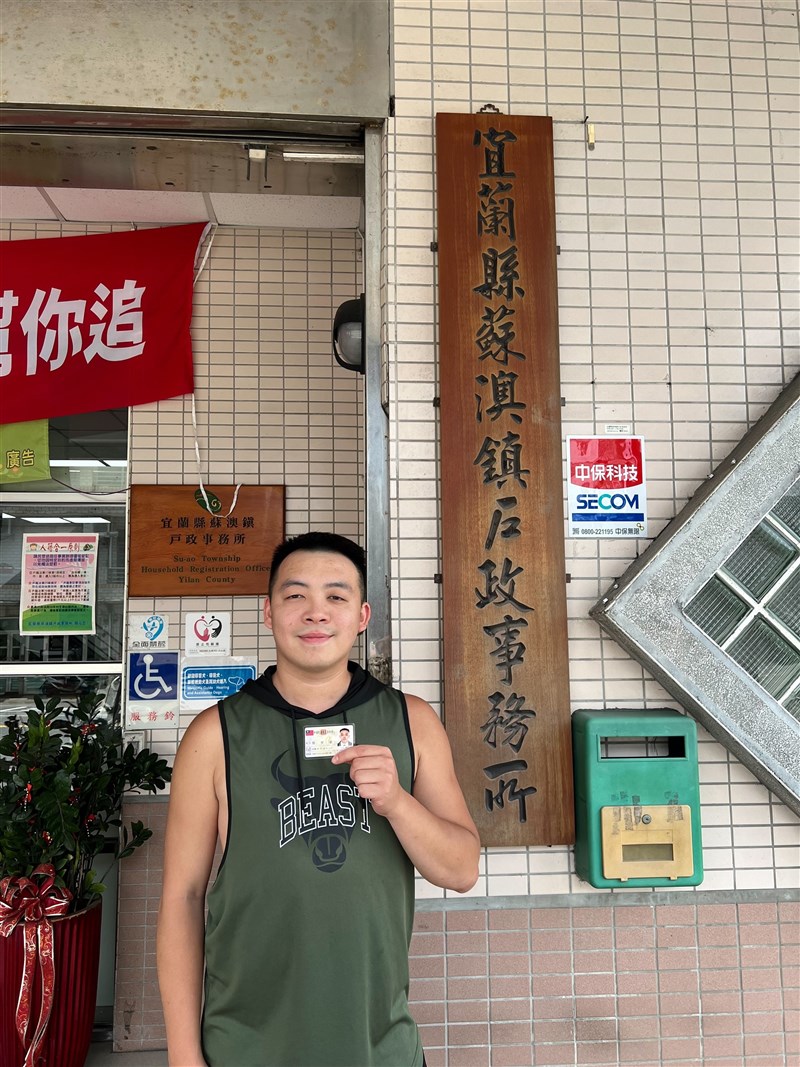
By C.C. Li, CNA staff reporter
Ivan Choi (蔡智豪) was forced into exile after playing an active role on the front lines of Hong Kong's 2019 mass protests.
He chose Taiwan as a safe haven, but found, as have many other Hongkongers, that the path to Taiwanese citizenship can be extremely bumpy.
"I gave up everything in Hong Kong, came to Taiwan alone with just two suitcases," Choi said. "There was no way this could have gone smoothly."
In an initial phone interview with CNA in June, the month Choi received his Taiwanese ID card, the 26-year-old reflected on his years of limbo in Taiwan, an island country he now calls his "second homeland" and is ready to serve.
A 'frontliner'
In 2019, a proposed extradition bill backed by the Hong Kong government sparked months of large-scale protests across the city, later known as the Anti-Extradition Law Amendment Bill Movement (Anti-ELAB Movement).
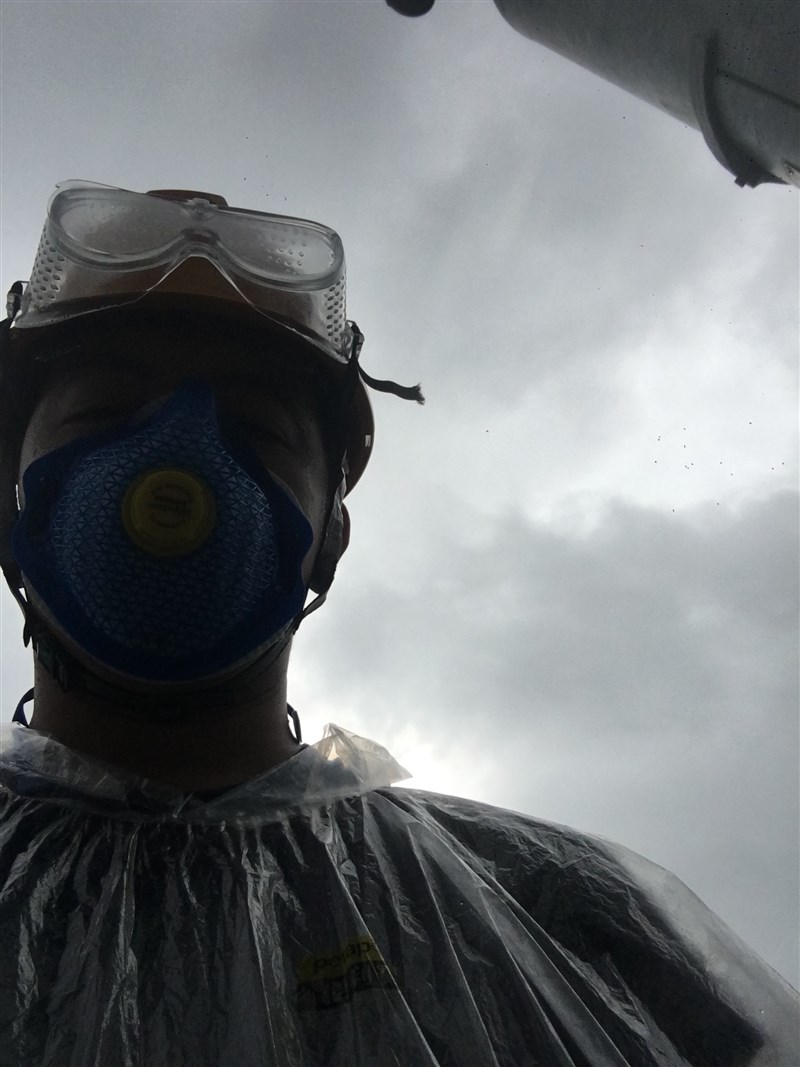
Starting in early June, frequent clashes between protesters and police erupted across parts of the former British colony as demands expanded beyond the withdrawal of the extradition bill to include broader calls for democratic reforms and police accountability.
Among the hundreds of thousands who took to the streets, Choi was one of the "frontliners" who engaged in direct confrontations with police, including during the July 1 storming of the Legislative Council (LegCo) Complex.
"When we were retreating in the early hours [of July 2]... I grabbed a fire extinguisher and sprayed some smoke, hoping the police would slow down a bit," he recalled.
"I started slowing down and ended up falling behind -- that's when I got hit in the leg by a bean bag round," Choi said.
A one-way ticket to Taiwan
With help from fellow "frontliners," Choi escaped the LegCo Complex that night and, fearing arrest, turned to underground networks for first aid instead of seeking treatment at public hospitals.
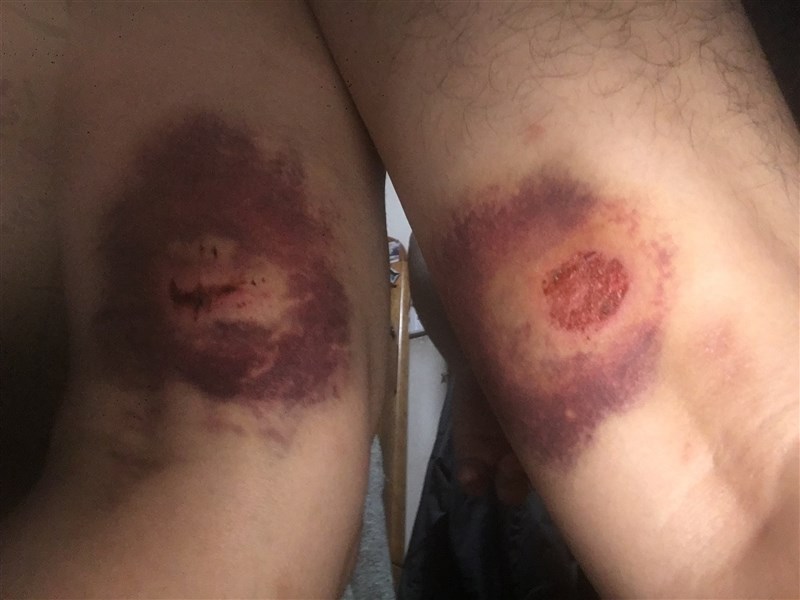
Within days, however, it became clear that staying in Hong Kong was too dangerous for Choi, as footage of his face inside the LegCo Complex had been captured by media, putting him at risk of being identified by police.
Out of fear, Choi flew to Taiwan on July 6 with little preparation, thinking only that he would "lay low for a while" and get his leg treated.
"Soon after I arrived in Taiwan, I realized just how real the risk was," Choi said, recalling that Hong Kong police had searched his family home not long after he left the city.
"That's when I knew there was no going back," he said, his voice calm but tinged with finality.
An asylum-like program
In early 2020, the Anti-ELAB movement gradually quieted down due to the COVID-19 pandemic, followed by the enactment of the national security law in the territory on June 30.
But for Choi, a new journey of uncertainty in Taiwan -- which does not have a formal asylum system -- was only beginning.
As more Hongkongers fled to Taiwan under circumstances similar to Choi's, Taiwan's Mainland Affairs Council in mid-2020 officially announced a humanitarian aid program to assist them, citing Article 18 of the Act Governing Relations with Hong Kong and Macau.
That article stipulates that "necessary assistance shall be provided to Hong Kong or Macau Residents whose safety and liberty are immediately threatened for political reasons."
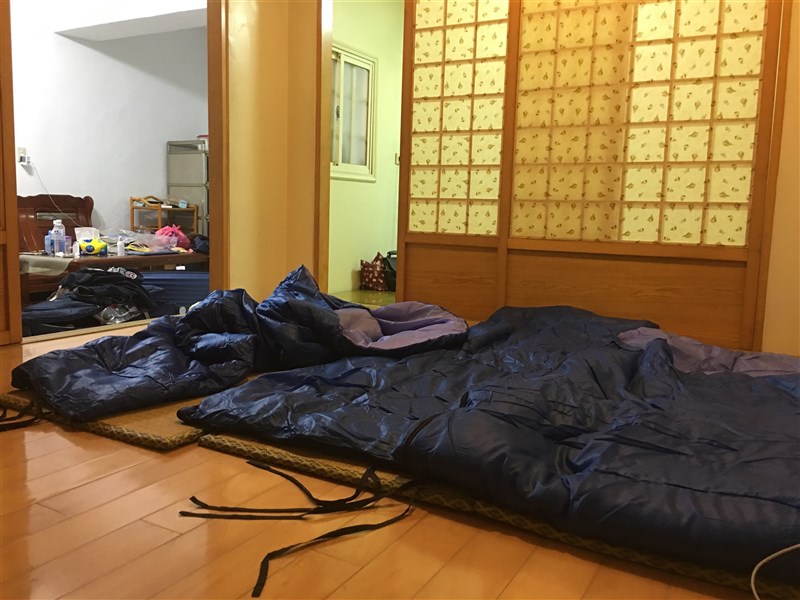
Choi said he was among the earliest applicants approved under the program in early 2020, prior to its official announcement, and was granted a resident certificate.
He recalled that at the time, they had no idea how long the wait would be, what it might lead to, or "what process we needed to follow to obtain a Taiwanese ID card."
A lesson to learn
While waiting in limbo, Choi immersed himself in life in Taiwan by studying at a university in Chiayi County and working at a human rights NGO.
Choi soon became a familiar face in Taiwan's activist circles, including the annual march commemorating the 228 Incident and protests against Beijing's growing influence in Taiwan.
"I gradually came to understand Taiwan's local history, especially its past under authoritarian rule," he said.
Comparing Taiwan's White Terror period with events in Hong Kong today, Choi said there are many parallels, citing examples such as shuttered media outlets and the persecution of dissent.
"Even if the actors are different, the face of authoritarianism remains the same," he added.
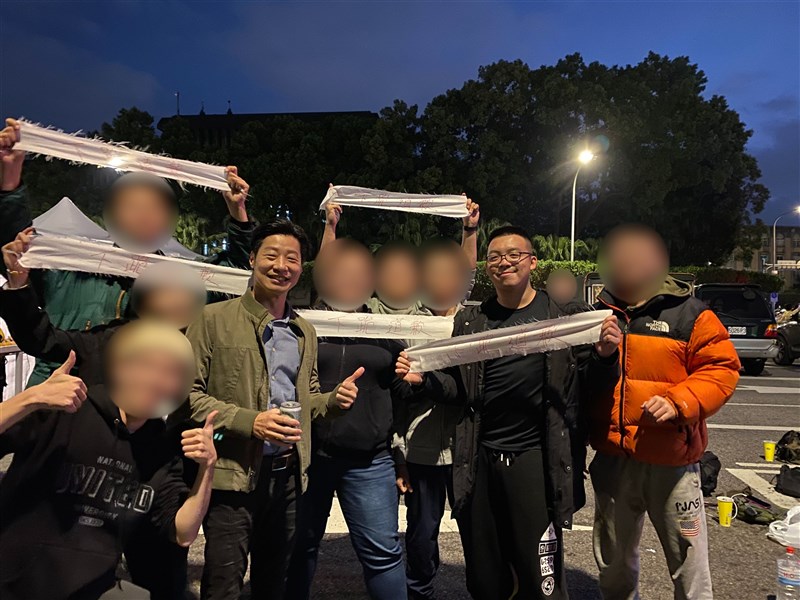
A citizenship against the odds
In January 2025, after five years in the aid program, Choi applied for permanent residency -- an intermediate status that allows foreign nationals to apply for household registration and thereby obtain Taiwanese citizenship.
On June 19, he was issued a Taiwanese ID card -- which, according to Choi, has so far been granted to only three Hong Kong activists under the aid program.
Taiwanese authorities have never disclosed many details about how applicants are reviewed under the aid program or how many Hong Kong activists have been granted Taiwanese citizenship, so Choi's number could not be confirmed.
Choi even told CNA that he was told to keep details of the program "as confidential as possible."
Still, what is known is that compared with countries such as Canada and the United Kingdom, where clear asylum systems exist, the lack of one in Taiwan has led many Hong Kong activists to seek resettlement elsewhere.
Choi refused to provide a specific number, but said that more than half of the Hong Kong protesters he knows who came to Taiwan have already left.
Asked whether he had considered seeking asylum elsewhere, Choi said, "I truly never thought about leaving from the very beginning," mainly because of his affection for Taiwan and the fact that he was among the first to receive assistance from the Taiwanese government.
"When someone is willing to offer a helping hand, but you choose not to trust them, isn't that almost like mocking the Taiwanese government?" he said.
A willingness to serve
Another factor behind Choi's decision to remain in Taiwan was his view of the country as "the frontline in resisting the Chinese Communist Party (CCP)."
"I didn't want to run a second time from the same enemy," he said.
Now that he is a Taiwanese citizen, Choi is obligated to serve four months of compulsory military training under Taiwan's conscription system.
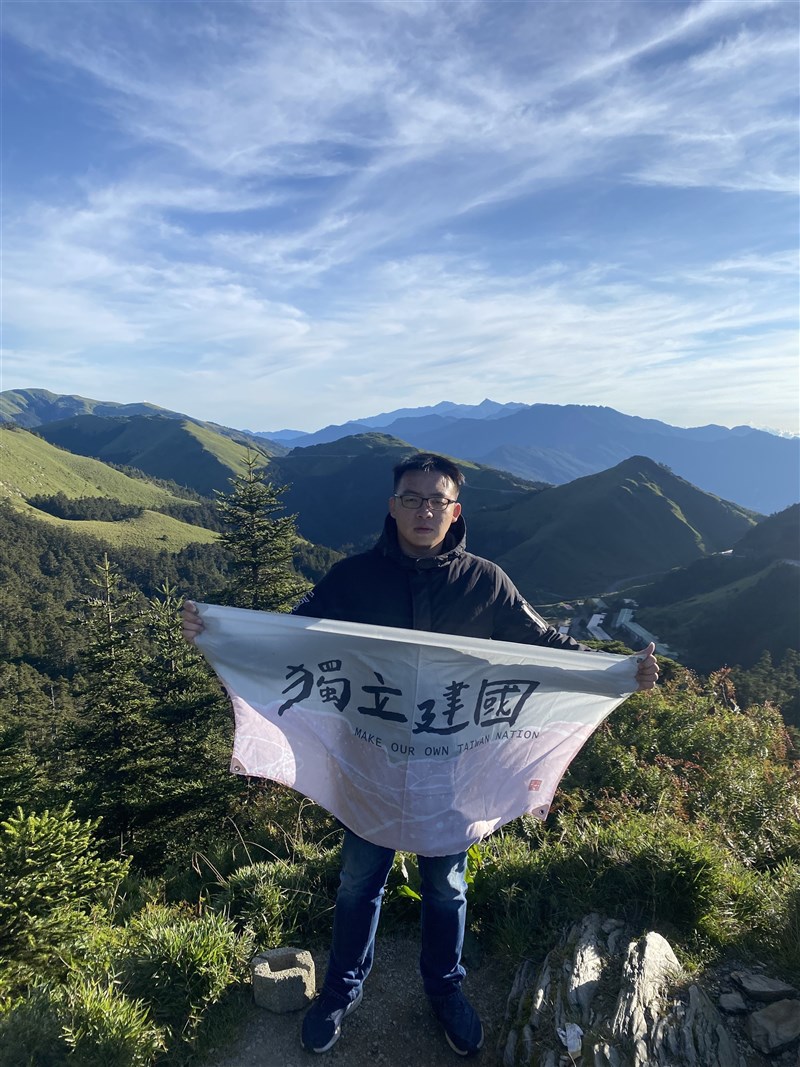
During the interview, Choi said he planned to enlist as a voluntary soldier once he began training, seeing military service as "the most direct way to resist the CCP and defend the country."
Following a medical examination in mid-July, Choi told CNA in August that he was expected to report for his four-month training by the end of 2025.
He also learned, however, that the law stipulates individuals originally from Hong Kong must have household registration in Taiwan for more than 20 years before they can become a volunteer enlisted soldier.
Feeling disappointed, Choi said he would still try to pursue the opportunity.
"Why not open the door to Hongkongers, who truly cherish freedom and have experienced firsthand how precious it is, to stand together in the fight to defend Taiwan?" he asked.
Enditem/ls
![Mystery novels: Writer Mou Yip on how genre binds Hong Kong and Taiwan]() Mystery novels: Writer Mou Yip on how genre binds Hong Kong and TaiwanWhen mystery writer Mou Yip (冒業) takes the stage at the Taipei International Book Exhibition (TiBE) on Feb. 7, it will be more than just a book talk to the 34-year-old Hong Konger.02/04/2026 10:14 AM
Mystery novels: Writer Mou Yip on how genre binds Hong Kong and TaiwanWhen mystery writer Mou Yip (冒業) takes the stage at the Taipei International Book Exhibition (TiBE) on Feb. 7, it will be more than just a book talk to the 34-year-old Hong Konger.02/04/2026 10:14 AM![Love by accident: A South Korean translator's commitment to Taiwan literature]() Love by accident: A South Korean translator's commitment to Taiwan literature"I was a foreign wanderer when I came to Taiwan a year ago," Kim Tae-sung quipped, reflecting on a transition that was as unexpected as it was deliberate.02/03/2026 11:44 AM
Love by accident: A South Korean translator's commitment to Taiwan literature"I was a foreign wanderer when I came to Taiwan a year ago," Kim Tae-sung quipped, reflecting on a transition that was as unexpected as it was deliberate.02/03/2026 11:44 AM![AIDC turns to drones as its next growth engine: Chairman]() AIDC turns to drones as its next growth engine: ChairmanAerospace Industrial Development Corp. (AIDC) is pivoting toward drones as it seeks its next growth engine, with Chairman Tsao Chin-ping (曹進平) citing rising global demand as the company shifts from aircraft manufacturing toward developing complete drone systems.01/31/2026 07:33 PM
AIDC turns to drones as its next growth engine: ChairmanAerospace Industrial Development Corp. (AIDC) is pivoting toward drones as it seeks its next growth engine, with Chairman Tsao Chin-ping (曹進平) citing rising global demand as the company shifts from aircraft manufacturing toward developing complete drone systems.01/31/2026 07:33 PM
- Politics
TPP defense act placed on its priority list for new legislative session
02/04/2026 10:39 PM - Business
Taiwan's Starlux Airlines to launch flights to Prague on Aug. 1
02/04/2026 09:28 PM - Business
Taiwan companies optimistic on enclosed-cabin scooter plan
02/04/2026 08:58 PM - Cross-Strait
MAC slams '1992 Consensus' push after CCP, KMT top figures meet in Beijing
02/04/2026 08:43 PM - Society
'Shanlan' tourism train arrives in Tainan
02/04/2026 08:37 PM
